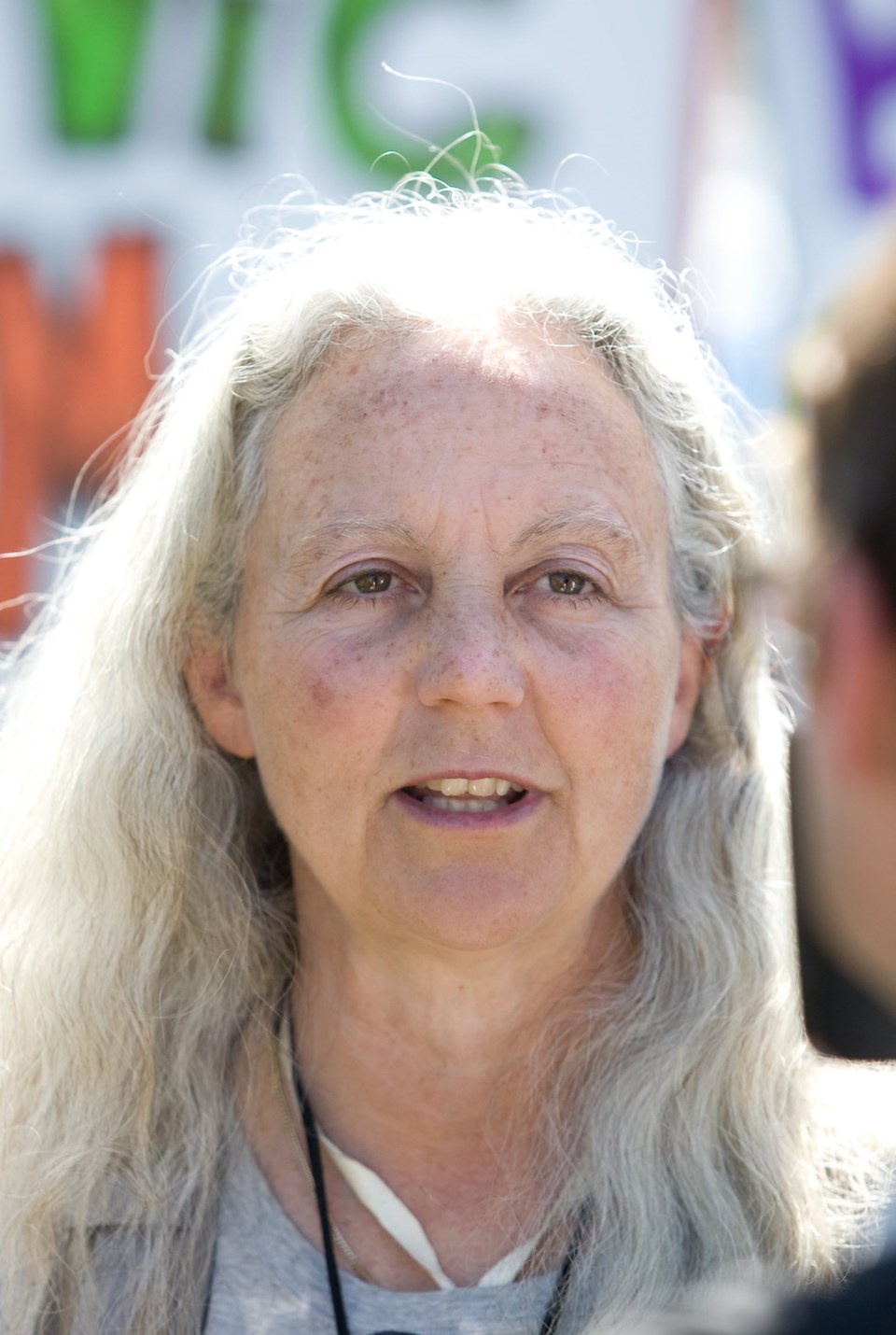A protest against ocean-water fish farms drew about 400 people, including First Nations members, leaders, politicians, activists and supporters to the B.C. legislature Saturday.
The demonstration was led by leaders of the Musgamagw Dzawada’enuxw First Nations of the areas around the Broughton Islands and Kingcome Inlet on the mainland east of the northern tip of Vancouver Island. They had journeyed from Campbell River aboard the activist group Sea Shepherd’s sailboat, the Martin Sheen.
They sailed down Vancouver Island’s east coast, stopping at communities along the way and sharing word of First Nations opposition to salmon farming, saying it spreads disease to the wild fish populations. They also performed sacred cleansing ceremonies in the waters.
The demonstrators, initially about 50 people in First Nations dress, docked at Victoria’s Coast Hotel, disembarked and then marched with drums, songs and signs saying thing like “No More Fish Farms.” At the steps of the legislature, supporters and onlookers gathered to hear their message.
“The salmon are our sustenance,” said Willie Moon, chief councillor of the Kingcome community. “Without that salmon, we will no longer exist.”
A letter protesting salmon farms in their territorial ocean waters was delivered to the legislature.
On Aug. 15, Moon and other leaders of native peoples went to a salmon farm, Cermaq/Mitsubishi, on the Burdwood Islands and hand delivered an eviction notice to all salmon farms operating in the natives’ traditional territorial waters.
Salmon returns this year have been dramatically lower than in past years. The Fraser River sockeye run is expected to see the return of only 2.27 million fish, compared with the average of 3.9 million, according to Pacific Salmon Commission.
Moon and others are pointing their fingers at fish farms, operated in open nets suspended in ocean waters. They say Atlantic salmon, packed tightly in net enclosures, are breeding grounds for viruses, bacteria and parasites that spread to wild Pacific populations that are passing by.
Moon said the ocean waters his people still regard as their territory contain 27 to 30 fish farms which they want to see gone.
“Sea lice were not a big problem before the fish farms showed up,” he said. “We want the fish farms out and we want them out sooner rather than later.”
Salmon farm operators have countered their industry is regularly subjected to environmental audits and is second in terms of agricultural production value in B.C. only to dairy.
The protesters were accompanied by biologist Alexandra Morton, a long-time critic of fish farming, who said she has completed and published research showing that last year 39 per cent of outward bound juveniles were killed as a result of sea-lice infestation.
Morton also said it’s unfair to allow fish farming around Broughton Archipelago and Kingcome Inlet where First Nations had always been opposed.
“They have said ‘no’ to the industry and to Canada and B.C. for close to 30 years,” she said.



